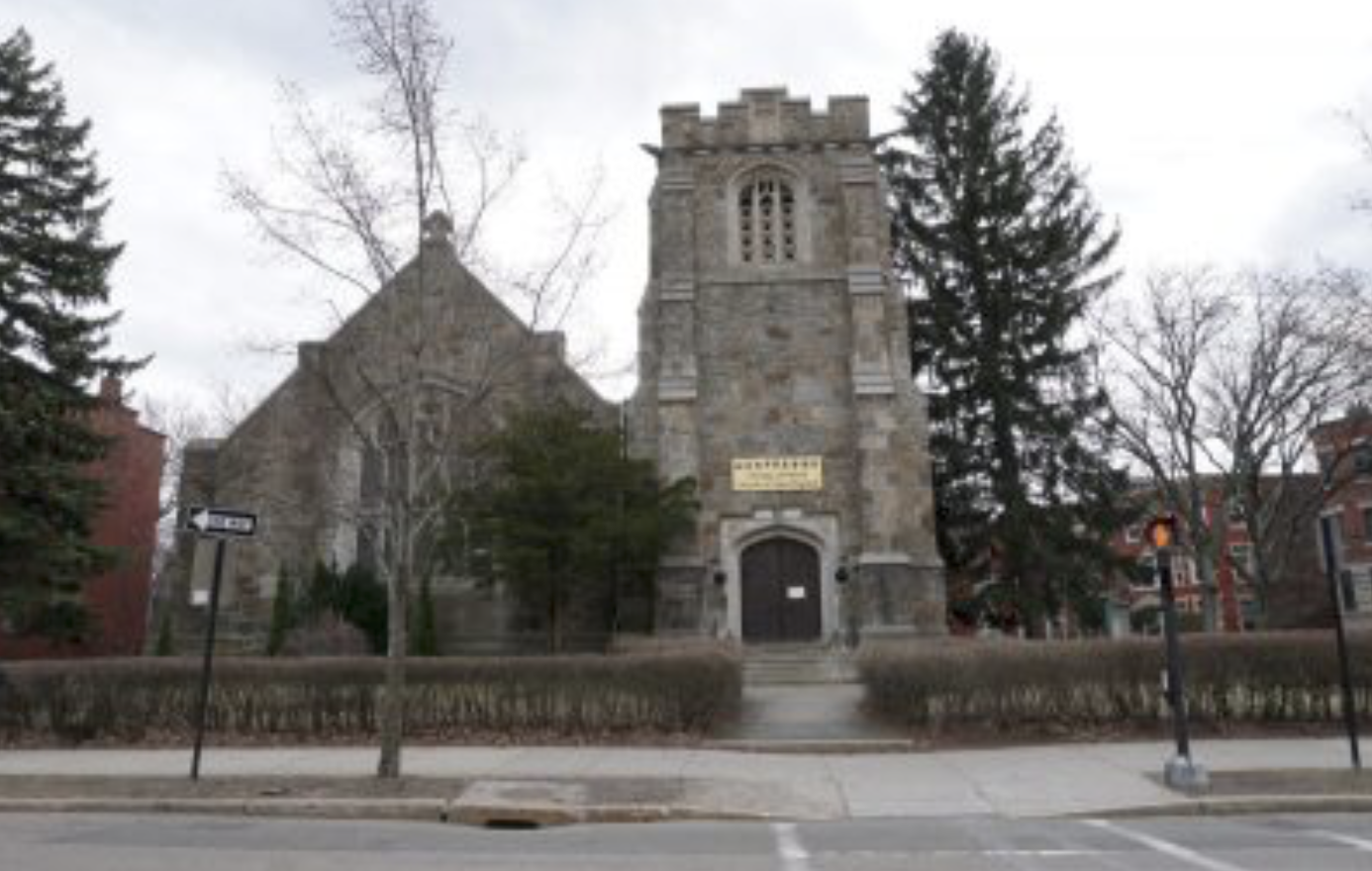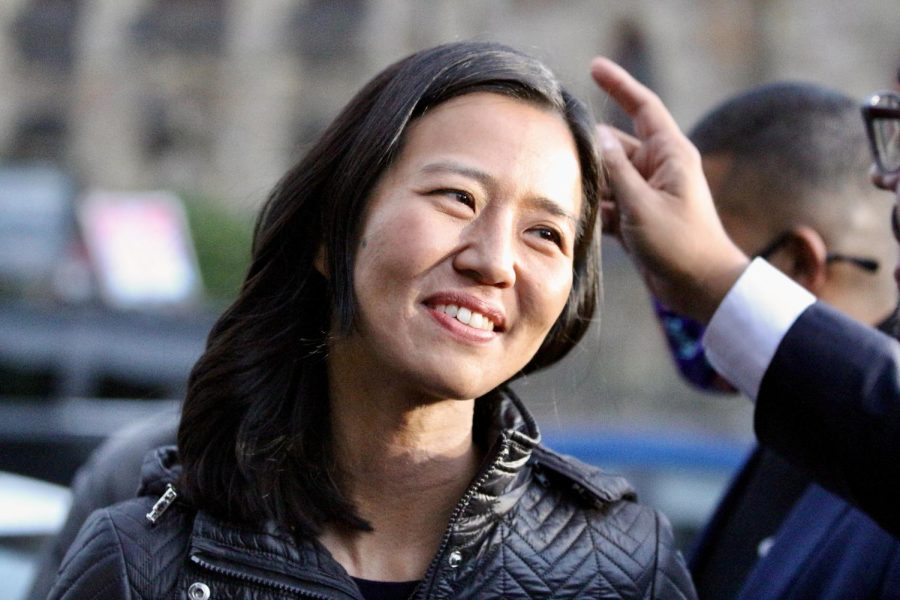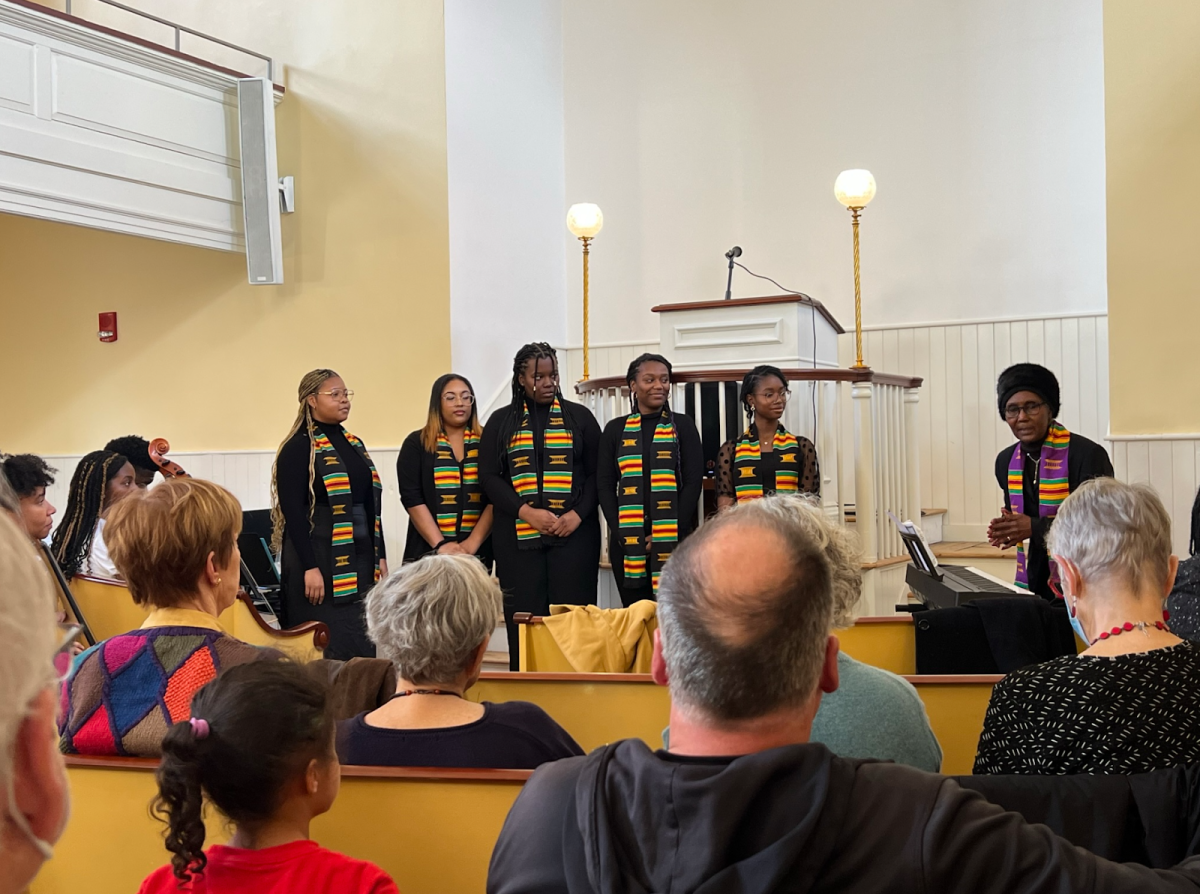Sitting around a table with four peers in the basement of an old church in Brookline, Emily Dong tried to answer discussion questions related to the Bible.
Dong has been attending weekly youth fellowship meetings at Chinese Christian Church of New England (CCCNE) since last November. That was two years after her mother, who was baptized in China, pushed her toward Christianity. Dong initially rejected the religion. However, after Dong came to Boston in September 2014, first as a student at Northeastern University and now as an employee at Massachusetts Trial Court, the firm atheist gradually wanted to know more about churches, especially youth groups.
“I feel like people in the fellowship are young, smart, kind and compassionate, so I want to make friends with them,” Dong said. “I’m interested in theology, too, but it’s not the main reason I came here.”
Dong was the only non-Christian among the 16 people who attended the meeting that day. Most members of the group are devout Chinese Christians in their 20s and 30s with high educational backgrounds, often pursuing doctoral degrees or post-doctoral positions at Harvard or MIT.
Besides going to Sunday morning masses, this group gathers every week, studying the Bible in three small groups of five people, singing hymns and discussing questions in Mandarin. The members with cars offer rides to those who would otherwise need to take public transportation after the meeting.
Occasionally, some fellows invite the others to their own houses, serving traditional Chinese dishes, like spare ribs with brown sauce and Mapo Tofu, and then sharing party photos in their WeChat group.
The Salt and Light Fellowship only had about five people in the beginning of last year. Since November, attendance has grown over 15 regular members, and more young people are showing interest.
“I would say it’s definitely a trend” for Chinese young people to convert to Christianity, said Chloe Sun, professor of Old Testament Studies at Logos Evangelical Seminary in California, the first seminary dedicated to Chinese speaking communities in North America.
Every Chinese Christian church in Boston has its own youth fellowships. Many cater to different generations of congregants by hosting services both in Mandarin and in English.
Third- or fourth-generation immigrants, who are often referred to as “ABC” (American-born Chinese), attend church with their parents or friends, seeking clues of their identity as Chinese people living in American society. To them, churches are places where Chinese culture and heritage are preserved by senior community members.
“Finding the identity as Asian Americans is very important to them,” said Mark Ho, a Chinese Christian who has lived in Boston for over 25 years and a father of two ABC children. “Compared to students grown up in China and come to Boston for education, ABC feel more urgent to identify themselves with Chinese heritage.”
Many Chinese churches in the U.S. celebrate Chinese New Year and Mid-Autumn Festival, which are two big days for family gathering in traditional Chinese culture. By this kind of “contextualized ministry,” according to Sun, Chinese churches manage to attract more people who are unfamiliar with their root culture.
However, young immigrants often have a complicated relationship with Christianity. Throughout China, communism is the dominant belief system and religious practice is restricted.
Starting a new life more than 7,000 miles away from home is difficult for many Chinese students and young professionals. They often have no friends or family with them, and communicating in without English fluency can make them feel more isolated. But in a Mandarin-speaking Chinese church, they find familiarity. Members call each other “brother” or “sister,” which gives a sense of family-like intimacy.

Chang Liu, 33, one of the earliest members in the Salt and Light Fellowship, converted to Christianity a couple of years ago, when she went to college in New Jersey. The population of Chinese students there is smaller than that in Boston.
“Almost every Chinese student there went to church, no matter if they believed in Christianity or not. Life was kind of boring… so we would be very satisfied to eat home style dishes made by church members,” Liu said. “They also picked up students from the airport and provided them a gathering place to network.”
For many Chinese young people who grow up in a well-off and stable economic environment, they eventually seek spiritual satisfaction beyond their material life.
“Some people find it [spiritual satisfaction] in travel, or doing other meaningful things, but a lot of people find it in religion,” said Eric Fish, a journalist and author of the book “Chinese Millennials.” Fish has done extensive research about young Chinese Christians.
Fish described it as a phenomenon of the post-socialist society or a post-communist personality. After the Soviet Union dissolved, religious belief grew rapidly among former communist countries in Eastern Europe. That’s now happening in China.
“China’s moral order used to be socialism, where people followed role models, like Lei Feng. But after capitalism came to China, it was pretty much discredited. So people don’t know what to believe in,” said Fish. “But religion gives them a clear set of moral standards. They set rules to live by to help people get a sense of the fast-changing society.”
Christianity, more than other religions in the world, seems most appealing to young Chinese. On one hand, people born in the 1980s and 1990s are more westernized and, as Fish said, may look to Christianity as a “cool western religion” to follow. On the other hand, the overlaps between Christianity and Confucianism may play a significant role in this “youth conversion trend.”
Confucianism, more influential in Chinese culture than any religion, has deep influence on people’s behaviors. Some core values in Confucianism, such as helping your neighbors and having compassion and empathy, are quite similar to pillars of Christianity. Chinese people might find these shared beliefs easy to understand and may have internalized them, said Shinmyoung Kim, a researcher at Boston University with a focus on the interreligious and intercultural formation between the Confucian tradition and Christianity.
Chinese students in Boston are able to familiarize themselves with this western religion, and at the same time, benefit from small, religion-driven ethnic communities.
“[Chinese students] share a common presumption that church members are good people,” said Dong. “So they come to churches and put off their guard. Also, if they need some resources, like housing, jobs or help with their study, they can get them from the churches.”
Before Dong came to CCCNE, she was a regular at another youth fellowship at a Chinese Christian church in Lexington, which had more members but did not spur her to become actively involved in Bible study. What she is doing now is different, she said. Dong is thinking about religion in order to change her demeanor, mindset and even her life in a positive way.
“God told us to be kind and tolerant to other people and help them as much as possible, which I cannot agree more,” Dong said. “I used to be a little bad-tempered, but I think I had made some changes and felt more peaceful after I read the Bible with these friends, ‘whose behavior is more likely to please God.’”







